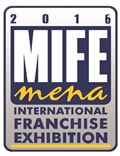
What is franchising?
How does a franchised chain start?
When I visit a store in my area, for example a well known fast food restaurant, how can I tell whether that restaurant is operated by the franchisor or by a franchisee?
It’s difficult to tell just by visiting the restaurant. However, if it is a franchise, there should be some signage in the restaurant which indicates that the restaurant is independently owned and operated. Many companies have stores that are operated by franchisees but also have stores that are company owned and operated. So it’s entirely possible that of two stores with the same name, one may be operated by a franchisee and the other operated by the company. In either case, the products, and quality should be the same.
How widespread is franchising?
Where do franchise sales come from?
Egyptian Franchise Development Association - About Franchising
What is "Business Format" franchising?
What are the major growth industries in
Specifically, what kinds of businesses lend themselves to franchising?
Egyptian Franchise Development Association - About Franchising
Are the
What should I consider before buying a franchise?
Egyptian Franchise Development Association - About Franchising
How can I be sure that the information provided in the disclosure document is truthful and accurate?
Egyptian Franchise Development Association - About Franchising
What kind of investment is necessary to buy a franchise?
Egyptian Franchise Development Association - About Franchising
Would I make a successful franchisee?
How do you explain the success rate for franchised businesses?
How can I be sure I won't lose money?
What are some of the drawbacks of owning a franchise?
What is franchising?
Why should I be concerned whether a company is a member of the International Franchise Association or a member of my country franchise association?
Are there any current trends in franchising?
What are some of the drawbacks of owning a franchise?


